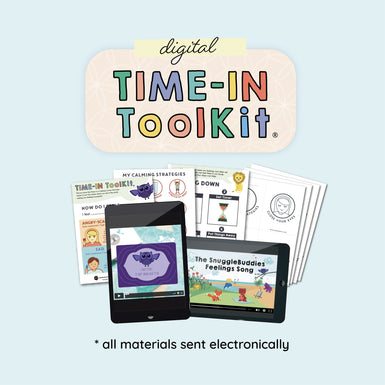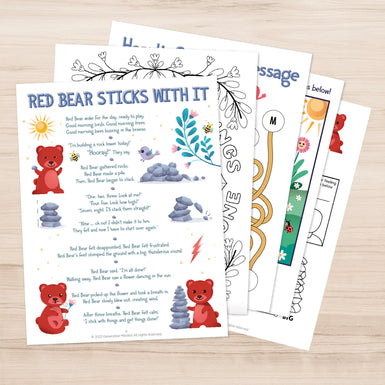Parents often complain about being manipulated by their children. We are warned to watch out for it almost from the time they learn to walk and talk, but did you know that manipulation requires cognitive and social skills that young children don’t yet possess? We are told that meltdowns and tantrums are a child’s way of manipulating their parents. But willful manipulation is a function of the prefrontal cortex, and this area of the brain is extremely underdeveloped in toddlers.
What is actually happening is the emotional center of your child’s brain becomes overloaded. Alarms then trigger the lower brain, sending your child into a meltdown. When the lower brain is running the show, children have little control over their actions. Kicking, screaming, and crying are ways to discharge those overwhelming emotions. It is not calculated, and it’s not a pleasant feeling that toddlers enjoy having.
As your toddler’s brain develops, they will gain the skills necessary to regulate their emotions, and meltdowns will decrease. Rather than ignoring or punishing, it’s more helpful to co-regulate with your child by helping them calm down. You can lay the foundation for her being able to self-regulate later by using a Calming Corner with the Time-In ToolKit or SnuggleBuddies plush, reading Heart’s Treasure Hunt, and teaching her mindful movements.
So, now that we’ve debunked this idea that children are manipulating their parents, let’s tackle the issue almost no one is talking about. Parental manipulation. It is actually much more common for the parent to manipulate the child and we do this in all sorts of ways, sometimes unintentionally. Parents use their child’s need for attachment and belonging against them all the time to gain compliance.
Whenever we force our children into a Time-Out or send them to their rooms, we are actually, slyly, using their need for closeness against them. Dr. Gordon Neufeld is a world-renowned psychologist and the founder of The Neufeld Institute. Regarding Time-Outs, he says, “Time-Out has become a panacea for many parents and was originally recommended as a replacement for spanking so that we wouldn’t harm our children. Unfortunately, we didn’t realize what children really needed. The most wounding experience of all is facing separation. If we knew that and understood it, we wouldn’t be using this as punishment.”
He goes on to explain that this kind of forced separation is emotionally wounding and calls forth strong emotions of alarm in children. If it works at all, it is because they have become so scared of losing your love, affection, and attention that they comply. This is not the place we want cooperation to come from, and each time we use these separation-based techniques, we are chipping away at our relationship with our children.
On the flip side of this same coin, we can use praise to have the same effect. Expressing genuine appreciation, affection, or pride is one thing. These genuine expressions are like sunlight to children, warming them and helping them grow. But when we heap on the praise with an end goal in mind, we are actually using manipulation. If the only reason I’m attempting to influence my child’s mood to feel good about accomplishing something is because I hope that, by doing so, they’ll be motivated to accomplish it again, then I am using my relationship and influence to manipulate my child to perform to my liking.
I know you’re probably thinking that parents can do no right. It feels that way when we shine a new light on things that we can improve upon, doesn’t it? I have often felt exasperated after reading articles just like this one, so please let me take a moment to assure you that this is not an attack, but simply an attempt to bring awareness to behaviors we may or may not have even realized we were displaying.
And listen, if praising your kid because they cleaned their room because you hope that’ll entice them to clean it again is your biggest parenting blunder, then kudos to you, because you are absolutely rocking it! There’s so much more to the big picture of our children’s childhoods!
But here’s the thing - we cannot control how our kids perceive these manipulations, big or small. Some of our children are much more sensitive than others. Some pick up on and are more deeply hurt by separation or punishment than others. Some kids who must face bigger, harder obstacles may find this the final straw. We just never know how shallow or how deep the hurt will go, and this is why caution is wise.
In addition, if children learn only to obey us out of fear, believe me, that fear has an expiration date. They may meet your preferences and requests to your face to avoid wrath, but what’s bubbling underneath and what’s happening when you’re not looking might be surprising. Rather, we want our children to clean their rooms because they deserve a tidy space and recognize that. We want them to do their chores to contribute to the family and help out their loved ones. We want them to try their best in school so that they won’t be limited by a subpar education. In other words, we want them to do what’s good and right for them, not for us.
Sure, kids are kids. It will take them years to learn and understand these things and to develop the proper skills. Our purpose is to guide, teach, and support them along the way. Yes, our relationship with them gives us the most influence. We say that a lot in positive parenting. But it’s not so that we can use that relationship to manipulate them, but rather to bring forth the natural respect and cooperation that exists in healthy relationships.
Let’s examine our own behaviors and take care not to use our love and acceptance as a dangling carrot. Love is not a reward. It’s a lifeline.























